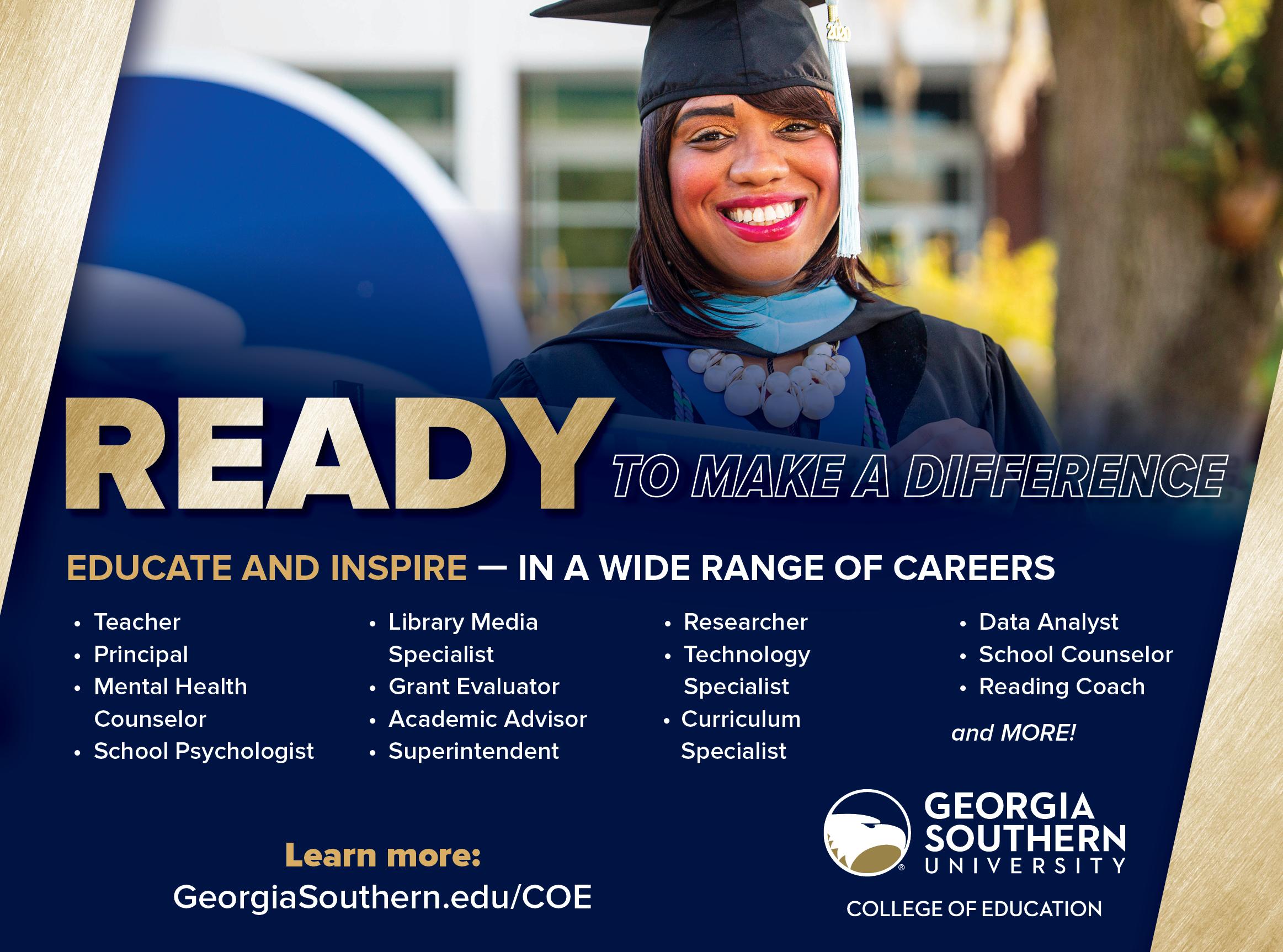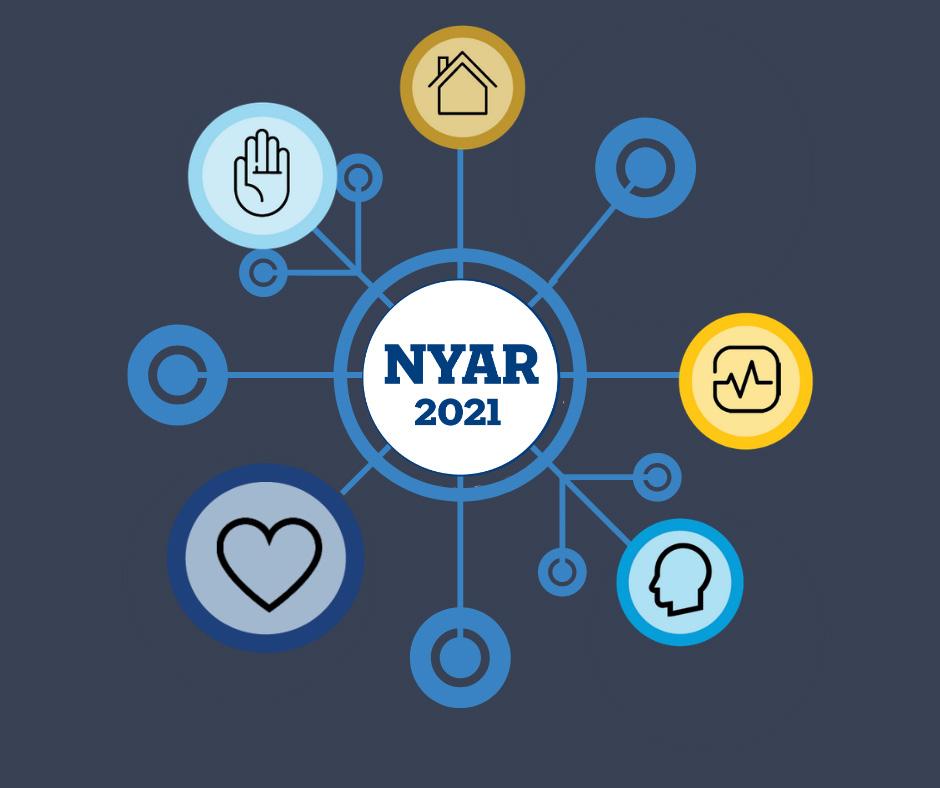
5 minute read
Session Ten
Resilience Can Be Taught: 10 Strategies Proven to Motivate Any Student
Christian Moore, LCSW, WhyTry, Provo, UT Resilience is something we are all born with–from the homeless person on the street to the Harvard business grad. Most of us–including many of our schools’ struggling students–just haven’t learned how to access what’s already inside of them. In this presentation, participants will learn about the vital skills of resilience found in WhyTry Founder Christian Moore’s book, “The Resilience Breakthrough: 27 Tools for Turning Adversity into Action.” This engaging presentation will empower you to deliver these skills to students of any background and learning style, enabling them to thrive not only in school, but in life.
Finding Balance in a Plugged in World
Sarah Kitchens, PhD, LAPC, NCC, Liberty University, Lynchburg, VA Teshaunda Hannor-Walker, PhD, LPC, NCC, CPCS, Liberty University, Albany, GA Lacey Ricks, PhD, Liberty University, Lynchburg, VA Technology and social media have many benefits; however, the overuse of technology and social media have many negative implications. This session will suggest interventions school counselors implement to help parents, teachers, and students seek to create healthy, sustainable balance between technology and social media. Come find out how to find balance in a plugged in world!
The ACCESS Framework: Bridging the Achievement GAP by Fostering Equitable Learning Environments
Randy Bumpers, MS, University of South Alabama, Mobile, AL Chelsia Douglas, BA, University of South Alabama, Mobile, AL The Giving Access to the People (GAP) Project is a subsidiary of the Foundation for Access of Education Equity. It is a K-12 educational program that provides students at-risk with high quality educational opportunities. Using the ACCESS Framework (Ask, Collect, Connect, Educate, Simulate, Support), the program helps students plan for their future by developing financial literacy, personal wellness, personal leadership, and college & career readiness.
Expect to Win: Bridging the Millennial Gap By Engaging and Empowering Challenging Students, Parents, and Staff
Lamar Thomas, EdS, Delta Innovative School, Quitman, GA Education generations are constantly changing and each generation creates its own challenges. Schools have to adjust and create strategies to meet the generational challenges for students, staff, and parents. Attend this session to learn strategies and ideas to help meet the needs of the new millennial while creating a positive environment for students, staff and parents.
12:25 - 1:40 p.m. Break for Lunch
1:40 - 2:40 p.m. Session 10 Breakouts
Helping Children of Trauma Feel and Experience a Sense of Hope in Their Lives
Jamie Like, BS, Henderson County Schools, Henderson, KY The presentation defines complex trauma and looks at it from the lens of a child who experienced multiple instances of trauma across numerous settings but also had exposure to a number of protective factors. The presentation explores national and state data regarding abuse and neglect, ACE’s and how complex trauma changes a child’s view of the world often leading to the development of poor coping skills, difficulty managing emotions and having difficulty imagining their lives ever being better. The presentation concludes with the idea that having a high ACE score does not “doom” a child to poor lifelong outcomes.
Leading in the Midst of a STORM
Cary E. Holman, EdD, LaVergne Middle School, Rutherford County Schools, LaVergne, TN The ability to offer solid instruction and guidance for all stakeholders is paramount for leadership. This workshop will capture the value of ensuring stakeholders embrace the power of positive thinking, calm reactions, and the need to be proactive when “STORMS” arise. Administrators, supervisors, teachers, and parents have the responsibility to help children prepare for certain and uncertain activities. Though often viewed as devastating, STORMS offer a time for unity and newness.
The Poverty Simulation: A Necessary Experience for Teachers
LindaAnn McCall, EdD, Georgia Southern University, Savannah, GA Jackie Ogden, CFCS, University of Georgia, Savannah, GA Presenters will highlight the impact of implementing a Poverty Simulation with new and experienced teacher populations. Participants will leave with tips and strategies for implementing their own Poverty Simulation.
The Art of Giving a $#!T: A Memoir and Guidebook for Urban Educators
Queinnise Miller, PhD, Houston, TX With the constant pressure of high-stakes testing and high achievement standards, the climate of a school can be compromised. This session will focus on specific strategies and techniques that can be implemented to create a positive school climate while at the same time enhancing student academic achievement. Participants will walk away with ideas that they can immediately implement in their schools.
Fostering Resilience in a Trauma-Sensitive Classroom
Kathy Perez, EdD, St. Mary’s College, Moraga, CA It is vital that educators understand the pervasiveness of trauma in student populations and create new strategies and considerations for educating these students. Increased awareness of how trauma affects performance and behavior allows educators to develop a trauma-informed approach, in order to create a safe and accessible learning environment where students can succeed.
Courageous Conversations: Understanding and Facilitating Difficult Dialogues on Racial and Gender Realities for Educators and Administrators
Summer Pannell, PhD, CAA, Stephen F. Austin State University, Nacogdoches, TX Brian Uriegas, EdD, Stephen F. Austin State University, Nacogdoches, TX This session will explore the clash of racial and gender realities in our schools and the negative impacts on students and staff. Participants will understand the three types of microaggressions and examine the harmful impacts of each on the school community. Participants will also explore strategies for handling microaggressions when they occur, facilitating difficult dialogues, and the principles of racism reduction to foster a culturally inclusive and anti-racist school community.
Together Yet Different: Youth Resilience Building Strategies Post-Pandemic
Frank Kros, MSW, JD, Kros Learning Group, Fallston, MD To meet the dramatic needs our youth will bring as a result of COVID-19, youth-serving professionals can prepare by boosting their resilience building skills. This workshop will equip adults to meet the social/ emotional needs youth will bring when we regather in our restructured post-pandemic programs. Learn strategies to dramatically increase youth resilience to help youth heal, grow, learn, and thrive. You’ll expand your toolbox with concrete strategies for building resilience in the complex post COVID19 context. These modern tools will show you how to reconnect, calm, provide clear direction, manage boundaries, and instill hope with your youth.




